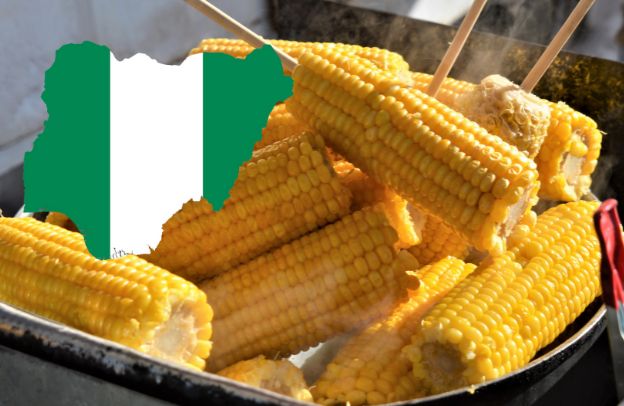Unlocking the Potential of Nigerian Agriculture: A Call to the African Diaspora

Have you ever considered that the solution to Africa’s food insecurity and job creation could lie in a crop as simple as maize? Or that the vast Nigerian landscape, with its untapped potential, could be your ticket to creating wealth while contributing to global food security? As an African diaspora entrepreneur, the opportunity to harness Nigeria’s agricultural potential isn’t just about profit, it’s about transforming lives and empowering communities.
Learn How to Leverage Your Story through our Story To Asset Transformation (S.A.T) Framework.
Maize, a versatile and globally significant crop, offers immense opportunities for agribusiness in Nigeria. Despite being Africa’s largest economy and one of the continent’s top maize producers, Nigeria struggles to meet both domestic and export demand due to systemic challenges.
For entrepreneurs in the diaspora, this is an invitation to step in, innovate, and invest in a sector brimming with potential.
The Significance of Maize: A Global and Local Powerhouse
Maize is far more than a staple food, it’s a critical driver of economic and industrial activities worldwide. Packed with nutrients like vitamin B, carbohydrates, and protein, maize provides 19.5% of the calories consumed globally, outpacing rice (16.5%) and wheat (15%).
Beyond its nutritional value, maize is a cornerstone for industries, used in producing everything from corn starch to ethanol, animal feed, and even biodegradable plastics.
In Nigeria, maize is deeply woven into the fabric of daily life. From “pap” (a fermented porridge) to roasted corn sold on street corners, the crop is a dietary staple. It also supports industrial sectors such as brewing and flour milling.
However, despite its critical role, Nigeria’s maize yield estimated at 10.5 million metric tons annually, remains insufficient to meet demand. This gap represents a golden opportunity for the African diaspora to step in with capital, expertise, and innovation.
Challenges in Nigerian Maize Production
Before diving into this lucrative venture, it’s essential to understand the challenges. Nigerian farmers face several hurdles that limit maize production:
- Declining Soil Fertility: Years of over-cultivation have depleted soil nutrients in many regions. Fertile, loamy soils once rich in essential elements like zinc and iron now require regular fertilizer application to remain productive.
- Pests and Diseases: Maize crops are vulnerable to destructive pests like rootworms and diseases that thrive in untreated soils. This not only reduces yield but also compromises the quality of maize produced.
- Low Adoption of Improved Seeds: While hybrid and open-pollinated seed varieties promise higher yields, many farmers lack access to these seeds or the knowledge to use them effectively.
- Limited Access to Mechanization: Most smallholder farmers still rely on traditional farming tools, leading to labor-intensive practices and lower productivity.
These challenges might seem daunting, but they are precisely where the diaspora’s expertise and resources can make a transformative impact.
According to a publication by the FAO, “Food starts with soils,” underscoring the fundamental role that soil health plays in global agrifood systems. As the target date for achieving the Sustainable Development Goals (SDGs) approaches, the urgency to reverse soil degradation and address its far-reaching effects has never been greater.
The booklet explores how soil fertility directly impacts the production of sufficient, safe, and nutritious food, essential for healthier plants, animals, and humans.
The publication offers actionable recommendations to create a more balanced and sustainable agrifood system, emphasizing the dual goals of enhancing human health and protecting the environment.
Soil fertility processes operate at scales ranging from microscopic molecules to the global ecosystem. Mismanagement of these processes such as the misuse and overuse of fertilizers can intensify global challenges, including food insecurity and climate change.
However, targeted interventions in these processes also present opportunities for solutions.
This comprehensive resource provides insights into the complex interplay between soil fertility, food security, and environmental sustainability. It highlights the pressing need to correct nutrient imbalances within agrifood systems and lays out pathways to address these issues effectively, contributing to a healthier planet and more resilient food systems.
How to Succeed in Nigerian Maize Production
To achieve high yields, start with the right land. Maize thrives in deep, dark loamy soils with good drainage. Avoid waterlogged areas or fields with excessive tree cover.
Once land is selected, proper preparation is crucial. Clear the land of weeds and debris, and if using mechanical methods, avoid disturbing the nutrient-rich topsoil.
Planting should follow immediately after clearing to prevent weed growth. With the right soil and timely planting, you set the foundation for a successful harvest.
Choosing High-Yield Maize Varieties
Not all maize seeds are created equal. Early-season planting is best suited for varieties like “TZSR1” and “DMR-LSRY”, while late-season planting requires options such as “TZESR-Y” and “DMR-ESRY”. For optimal results, source seeds from certified suppliers and avoid planting leftover grains from previous harvests.
Modern Farming Techniques
Irrigation systems can revolutionize maize farming, especially for diaspora entrepreneurs looking to scale production. While most Nigerian farmers rely on seasonal rainfall, you can adopt:
- Sprinkler Irrigation: Affordable options like rain guns and spray tubes ensure even water distribution.
- Drip Irrigation: This method conserves water while doubling yields by delivering moisture directly to the root zone.
Fertilizers are another game-changer. A hectare of maize requires about 15 bags of NPK fertilizer, along with organic soil improvers like compost or manure. Applying fertilizers strategically during planting and growth stages boosts crop performance significantly.
Post-Harvest Technology
Losses from poor post-harvest handling cost Nigerian farmers millions annually. By investing in technologies like solar dryers and hermetic storage bags, you can reduce spoilage and preserve maize quality.
Proper storage and packaging also increase the crop’s market value, making it more attractive to industrial buyers and exporters.
According to a ResearchGate article, reducing post-harvest losses (PHL) is crucial for achieving food and nutrition security in sub-Saharan Africa. Despite its importance, there is limited understanding of the true scale and nature of these losses.
A comprehensive meta-analysis has revealed significant gaps in the methodologies used to assess PHL, leading to inaccurate estimations. Furthermore, many reported losses are often economic rather than physical, reflecting inefficiencies in market systems rather than outright spoilage or wastage.
The study also highlights a key shortfall: existing technologies designed to reduce losses often fail to consider the complexities and dynamics of supply chains.
As a result, the authors emphasize the urgent need for more rigorous and systematic methods to assess PHL accurately.
In addition, they advocate for holistic solutions that address the entire supply chain, ensuring that loss mitigation strategies are both effective and sustainable.
See also: Economic And Health Benefits Of Maize In Nigeria
The Agribusiness Advantage: High-Value Products and Exports
While raw maize is valuable, processing it into high-value products unlocks even greater profitability. For example:
- Corn Starch: Used in food, pharmaceuticals, and industrial applications.
- Ethanol: A renewable biofuel with growing global demand.
- Animal Feed: Essential for Nigeria’s expanding poultry and livestock sectors.
Nigeria’s proximity to major markets in Europe and the Middle East positions it as a strategic export hub. By setting up processing facilities, diaspora entrepreneurs can tap into these markets while creating jobs locally.
Opportunities for the African Diaspora
The African diaspora holds a unique advantage in transforming Nigeria’s agricultural landscape. Here’s why:
- Access to Capital: With stronger financial networks, diaspora entrepreneurs can invest in advanced technologies and infrastructure.
- Global Market Knowledge: Exposure to international markets provides insights into export requirements and quality standards.
- Community Impact: Investing in agriculture helps address food insecurity, create jobs, and reduce poverty in rural areas.
According to the World Bank, Nigeria’s agribusiness sector has the potential to generate $1 trillion annually by 2030. With maize as a cornerstone, this is an opportunity to align profit with purpose. Here are some Key Resources for Entrepreneurs:
- The Food and Agriculture Organization (FAO): FAO provides data-driven insights into crop production, soil management, and pest control strategies. Their recent report on “Sustainable Agricultural Mechanization in Africa” outlines how modern equipment can boost productivity.
- World Bank’s Agribusiness Indicators: These offer a comprehensive overview of market trends and investment opportunities in Nigeria’s agricultural sector.
- African Development Bank (AfDB): Through initiatives like the Feed Africa Strategy, AfDB supports diaspora-led investments in agriculture with funding and technical assistance.
See also: Unlocking the Power of Maize: 4 Key Byproducts You Use Every Day
Call to Action: Be the Change Nigeria Needs
The time to act is now. By investing in maize production, you can drive sustainable development while achieving impressive returns.
Whether you’re setting up irrigation systems, introducing post-harvest technologies, or exporting processed maize products, your efforts will ripple across communities, industries, and borders.
So, will you join the agricultural revolution and unlock Nigeria’s maize potential? The land is fertile, the demand is high, and the impact you can make is immeasurable.
Learn How to Leverage Your Story through our Story To Asset Transformation (S.A.T) Framework.




